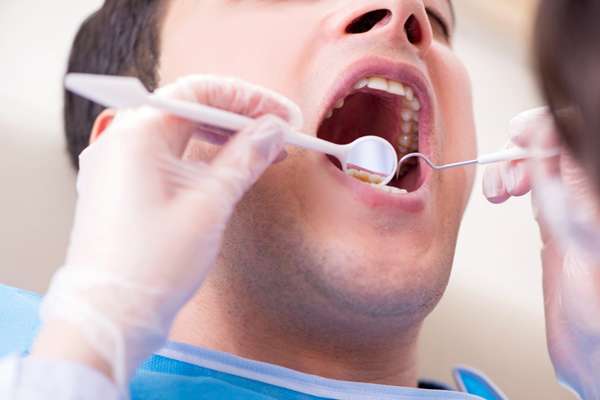General Dentistry: 3 Myths About Dental Exams

Proper oral hygiene is an often-overlooked but important part of a person's dental health, as well as overall health. In general dentistry, routine dental exams are a crucial aspect of oral healthcare that maintains healthy teeth. However, there are many myths surrounding exams.
Three common myths regarding dental exams
The following are three of the most common myths about dental exams, as well as the truth behind them.
1. Visits are only for dental issues
Many people believe that visits to a dentist are reserved for when there is a problem. This belief, however, is false and can be detrimental to a patient's health. In general dentistry, routine dental exams need to be done twice a year. These exams are used to clean the teeth and gums and check for any possible dental problems. If there are issues, such as cavities, a dentist can catch them early and often before the patient realizes there is a problem. Some dental conditions, such as gum disease, are important to treat as soon as possible to prevent further damage to the teeth and gums. Prevention of serious dental problems can help patients maintain good oral health.
2. Young children do not need exams
Another common myth about general dentistry is that children do not need to have regular dental exams done because the health of their baby teeth is irrelevant. However, children need to visit the dentist by the time they reach their first birthday. This first visit is crucial to helping children understand dentist visits and to get into a routine of regular visits.
By the time a child is two, the usual recommendation of exams every six months applies. Dental exams are just as important for a child's baby teeth as an adult's permanent teeth. Children need to understand proper oral hygiene to avoid cavities and dental problems and help them maintain this standard of care when they have permanent teeth; this can help to avoid complications later in life. Some dental issues that cause problems for baby teeth can also result in detrimental effects to the permanent teeth when they eventually erupt.
3. X-rays are optional
There are some people who believe the myth that X-rays are not a necessary component of dental care. In fact, such imaging is an important part of routine dental exams and should always be done at least once every year or two, even for patients with healthy teeth and gums. X-rays are able to catch potentially serious dental problems that may not be visible on the surface during a routine exam, allowing for treatment to stop any further issues from developing.
Schedule your next dental exam today
When it comes to general dentistry, patients always need to have routine dental exams done every six months. Contrary to some common myths, dental exams are vitally important to maintain proper oral health, as well as to catch any dental problems as they occur and prevent more serious complications from developing. Call our office to schedule your next dental exam today.
Request an appointment here: https://www.uplanddentalgroup.com or call Upland Dental Group And Implant Center at (909) 660-6080 for an appointment in our Upland office.
Check out what others are saying about our dental services on Yelp: General Dentistry Services in Upland, CA.
Related Posts
Good dental practice stresses that developing cavities is a common health issue. Cavities affect the elderly, adults, teenagers, and children. The accumulation of bacteria results in plaque. Because plaque is sticky, it keeps pouring acids on teeth. This destroys the enamel layer. When this happens, cavities appear in the form of holes in teeth.Cavities come…
Visiting a dental practice is an important way of protecting your teeth from decay and cavities. Many people have oral health conditions and do not get regular care. But dental practice visits are crucial in finding issues with the teeth early on so that treatment can begin. Keep reading to learn more about why you…
Patients’ health depends on having healthy gums, so many dental practices have tips on that. Flossing and brushing should happen often enough to prevent plaque and tartar buildup. With the right techniques, a patient can have teeth that last for a lifetime. Continue reading to learn more about them.Cleaning the teeth often happens through brushing.…
You need to have a checkup at a dental practice every six months. This is when a hygienist cleans your teeth to remove any buildup of plaque and tartar. This is also the time when a dentist does an oral examination, looking for things like cavities, gum disease, and even oral cancer. However, during regular…
